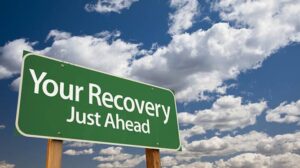Substance Abuse & Behavioral Addiction
What happens in counseling?
An important part of substance or behavioral addiction counseling is the development of healthy coping strategies to manage life stressors. Underlying mental health conditions or significant life changes can often lead to substance abuse or other addictions. Meeting with a counselor to learn the tools and skills for handling stressors can help maintain sobriety and abstinence.
Counseling can involve :
- Identifying other mental health issues such as depression, anxiety, mood disorders, and trauma
- Barriers to change
- Harm reduction strategies
- Relapse prevention
- Learning skills to handle daily life stressors
- Learning more about the science behind addiction
- Talking with family members and provide guidance and support
Substance abuse / behavioral addiction counseling is a combination of methods that best fit the client’s unique needs. Methods, such as cognitive behavioral therapy, assists in identifying and changing negative thoughts, feelings, and behaviors that contribute to the addiction.
What is Behavioral Addiction?
Typically when a person hears the word “addiction”, they think of drugs, alcohol, and cigarettes. So, what are behavioral addictions?
Behavioral addictions (also referred to as process addictions) are non-drug addictions that share similar attributes, when it comes to certain behaviors. The individual becomes “addicted” to the feeling they get when engaging in certain activities. Individuals continue to seek the “reward” feeling, despite negative consequences. These addictions begin the same way that drug or alcohol addictions do with natural chemicals flooding the brain when an individual engages in this activity. In some cases, people experience withdrawal, including negative emotions and other symptoms, similar to drug or alcohol addiction. Researchers believe that the same regions of the brain are affected by substance addiction and non-substance addiction. While it’s true that behavioral addictions don’t cause a physical dependence like opiates or meth, people with a behavioral addiction will experience similar adverse consequences.
Examples of Behavioral Addictions
Some activities are so normal that it’s hard to believe people can become addicted to them. Yet the cycle of addiction can still take over, making everyday life a constant struggle. People may seek out more and more opportunities to engage in the behavior. The desire to experience a “high” from the behavior becomes so strong they don’t care what the consequences are.
Examples of Behavioral Addictions include:
- Gambling addiction

- Sex addiction
- Internet addiction
- Shopping addiction
- Video game addiction
- Food addiction
- Exercise addiction
- Porn addiction
Currently, gambling disorder is the only officially recognized behavioral addiction. However, it’s important to know that behavioral addictions follow the same pattern as substance-based addictions. Some addictions can be distressing conditions which can be treated and some behavioral addictions are more common than others. These behaviors can also create lots of distress and can be very difficult to change, even when the person wants to stop engaging in such actions.
Could counseling benefit you or a loved one? Take consideration of the following:
- There is an urge to use that interferes with daily life tasks
- Feeling as if you need to use the substance or engage in the activity frequently
- Requiring more of the substance or activity to achieve the desired effect
- Spending a lot of time trying to acquire the substance
- Relationships or personal roles are being affected by use
- Experiencing withdrawal symptoms when the substance is not consumed or no access to the activity
Leaving a behavioral disorder untreated can cause immense suffering for the person addicted and their loved ones. If you or someone you care about has a behavioral disorder, don’t hesitate to contact a qualified therapist and get the help you need.
